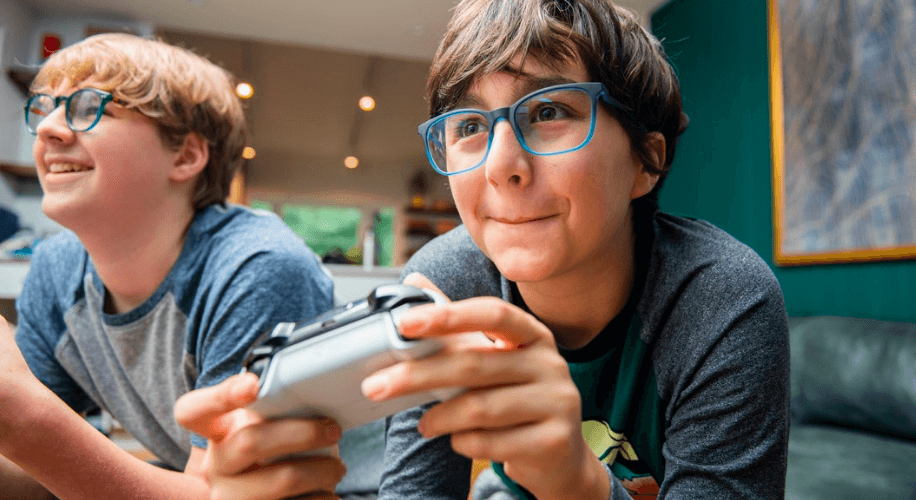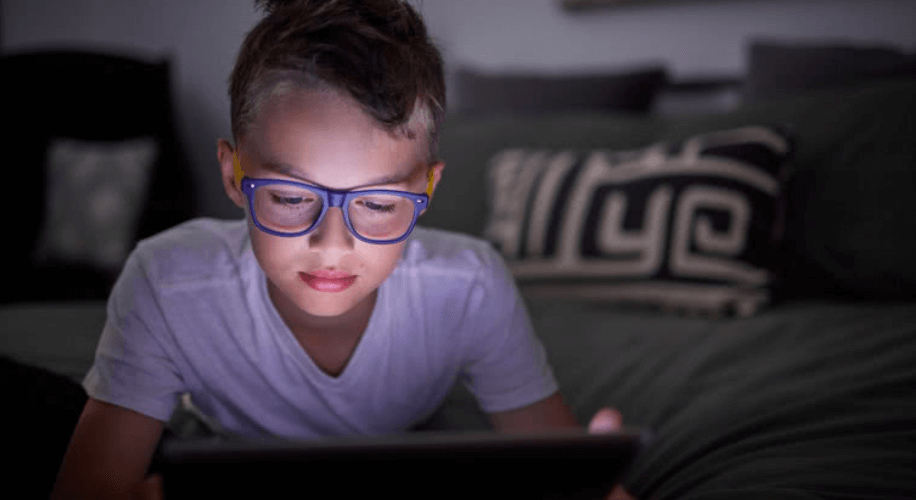Caring for Your Child’s Eyes: Tips for Optimal Eye Health
- BY Dr. Steven Liem
- IN Kids
As a parent, you want to do everything you can to ensure your child’s health and well-being. While you may be focused on their physical health, it’s important not to overlook their eye health. Children’s eyes are still developing and are more susceptible to damage, so it’s crucial to schedule regular eye exams and find the perfect kids’ glasses. Here are some essential tips for maintaining your child’s eye health.
Schedule Regular Eye Exams

The American Optometric Association recommends that children have their first eye exam at 6 months of age, then again at 3 years old, and before starting school. After that, they should have an eye exam every 1-2 years, or as recommended by their eye doctor. These exams can detect any vision problems or eye diseases early on, allowing for prompt treatment and prevention of further damage.
Encourage Eye Protection
Whether your child is playing sports or just spending time outdoors, it’s important to protect their eyes from potential injuries. Make sure they wear appropriate eye protection, such as goggles or helmets with face shields, when participating in sports or activities that could cause eye injuries. Additionally, sunglasses with UV protection should be worn when spending time in the sun to prevent damage from harmful UV rays.
Limit Screen Time

In today’s digital age, it’s almost impossible to avoid screens altogether. However, it’s important to limit your child’s screen time, whether it’s from TV, computers, tablets, or smartphones. Too much screen time can strain their eyes and lead to headaches, dry eyes, and blurred vision. Encourage breaks from screens and make sure they are sitting at a proper distance from the screen to reduce eye strain.
Proper Lighting

Proper lighting is crucial for your child’s eye health, especially when reading or doing other close-up activities. Make sure their study area is well-lit with natural or artificial light. Avoid harsh lighting that can cause glare on screens or paper. Additionally, make sure they are not reading in dimly lit areas, as this can cause eye strain and fatigue.
Mental Health and Eye Health Connection
Mental health research has shown a significant link between vision impairment and mental health challenges in children. Studies indicate that conditions like myopia and strabismus can lead to increased rates of depression and anxiety. As a parent, it’s essential to recognize that your child’s emotional well-being is closely tied to their vision health. Regular eye exams not only detect visual impairments but also prevent potential negative impacts on your child’s self-esteem and social interactions. By ensuring prompt treatment for any vision issues, you can help safeguard not just their eyesight but also their mental health, promoting a happier and more confident childhood.
Healthy Diet
A balanced and nutritious diet is not only important for your child’s overall health, but it also plays a role in their eye health. Foods rich in omega-3 fatty acids, vitamin C, and vitamin E can help prevent age-related eye diseases. Encourage your child to eat a variety of fruits, vegetables, and fish to ensure they are getting these essential nutrients.
Look for Warning Signs
As a parent, it’s important to be aware of any warning signs that may indicate a problem with your child’s eyes. If your child frequently rubs their eyes, squints, or complains of headaches or blurred vision, it may be a sign that they need glasses. If you notice any of these symptoms, schedule an eye exam with their pediatrician or an eye doctor.
By following these essential tips for eye care for children, you can help maintain your child’s eye health and prevent any potential problems. Remember to schedule regular eye exams and encourage healthy habits to ensure your child’s eyes stay healthy and strong.

